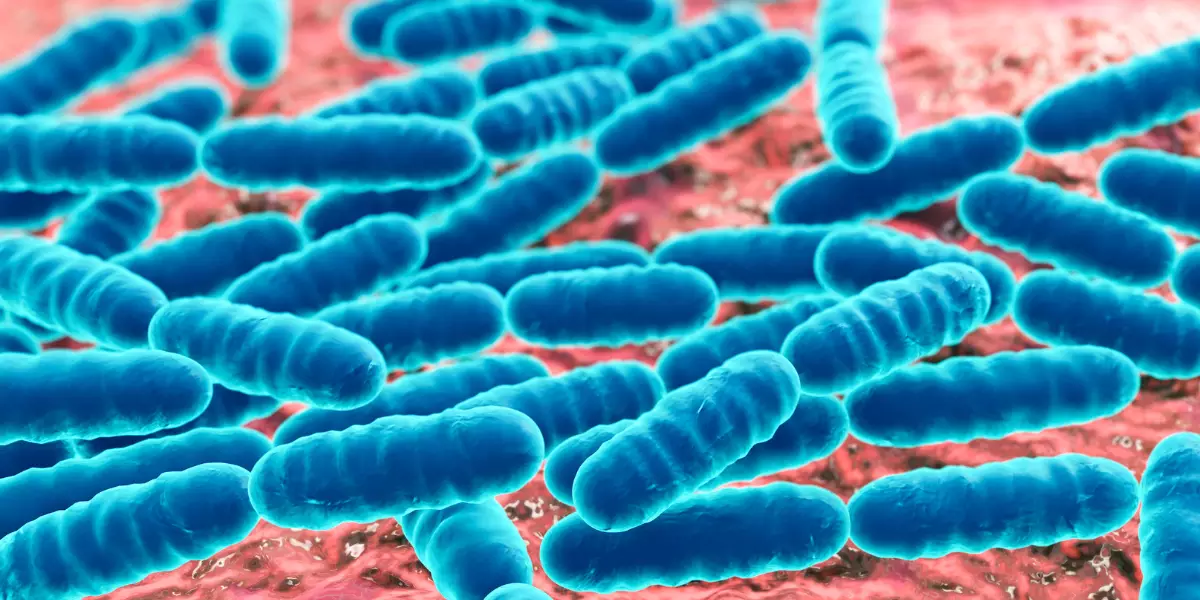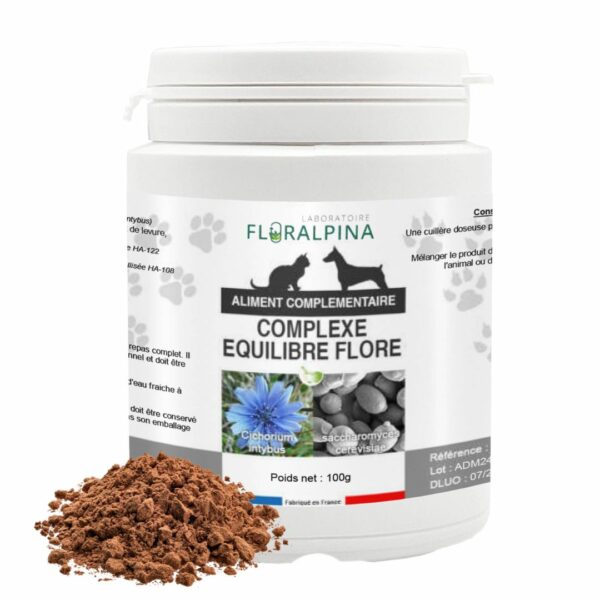Table of Contents
ToggleWhat is a probiotic?
Probiotics are living microorganisms that, when ingested in sufficient quantities, have positive health effects beyond traditional nutritional effects. The most common probiotics are lactic and bifidobacterial bacteria that are part of the normal intestinal flora.
Probiotics are available as food supplements (gels, powders, etc.) or already naturally present in certain fermented foods such as yogurt, kefir, kombucha, lacto-fermented foods, etc.
Their benefits are numerous: regulation of intestinal transit, strengthening of the immune system, protection of the intestinal flora, improvement of certain food intolerances, reduction of itching, etc.
However, not all probiotics are effective in the same way. Their effectiveness depends mainly on the strains used and the amount ingested.
What are the benefits of probiotics for dogs?
Probiotics are particularly recommended for dogs with frequent digestive disorders, weakened immune system or antibiotic therapy. They are generally very well tolerated in dogs. Here are some benefits they can bring to dogs:
Promote dog digestion
They help restore the intestinal flora after a disease or the taking of antibiotics. Antibiotics can destroy good intestinal bacteria and probiotics will re-implant them.
They improve nutrient absorption by helping to digest and assimilate food more effectively. They strengthen the intestinal immune system, creating a barrier against pathogens.
Probiotics will also help relieve gastrointestinal problems such as diarrhoea, bloating, flatulence or constipation. Finally, they reduce the risk of chronic inflammatory bowel diseases and help reduce food intolerance.
Helping the dog scratches in case of atopic dermatitis
Some probiotics can help strengthen the skin barrier and reduce itching and inflammation associated with skin problems. Indeed, by rebalancing the intestinal flora, they can reduce hypersensitivity to allergens. In case of atopic dermatitis, one of the most common causes of itching in dogs, they can therefore be very useful. Some specific probiotics with anti-inflammatory strains such as Lactobacillus rhamnosus can be recommended.
Strengthening the immune system naturally
To naturally strengthen a dog's immune system thanks to probiotics, make sure to choose a mixture of broad-spectrum probiotics, with different strains of lactobacilli and bifidobacteria. Focus on specific dog formulations as our food supplement based on natural bacteria.
The digestive tract contains 70% of the body's immune cells. Healthy intestines prevent pathogens from entering the body. Probiotics will rebalance the intestinal flora between good and bad bacteria, which is essential for the proper functioning of the immune system.
In addition, they will help increase production:
• Immunoglobulins by intestinal cells, which boosts antibody action.
• T-cells that destroy infected cells, and cytokines that regulate the immune response.
Flore Balance Complex
Probiotic plant complex for your dog or cat. ✅Promotes digestion ✅Strengthens natural defences ✅Restores intestinal flora balance Size 100g Dosing spoon included
How to use a probiotic?
Give probiotics daily in prevention, not only when the dog is sick. Regular intake will be more effective. During winter, or during severe stress (movement, travel, etc.), you can slightly increase the dose.
Do 2 to 3 weeks of treatment rather than a few spaced doses. Maintain good hygiene and a calm environment so as not to disrupt the action of probiotics.
Respect the dose recommended by the veterinarian or indicated on the package according to the weight of the dog. Do not exceed the dose. Give the probiotic preferably in the morning, fasting, at least 30 minutes before the meal. This allows probiotics to reach the intestine.
For powdered probiotics, you can sprinkle them on the dog's food or dissolve them in drinking water. Think about closing the packaging to preserve the effectiveness of air and heat sensitive probiotics.
Finally, if you give an antibiotic to your dog, take probiotics for at least 2 hours to avoid damaging probiotics.
Are there any side effects on probiotic use in dogs?
As with any dietary supplement, the use of probiotics in dogs may occasionally cause some side effects, usually mild:
• Mild digestive disorders (bulbing, flatulence, diarrhoea) may occur when the dog is not used to probiotics. These symptoms are transient.
• Allergic reactions are rarely observed in intolerant or allergic dogs to certain probiotic components.
• In cases of weakened immune system, rare cases of infections have been reported.
• Interaction is possible with certain medicines such as immunosuppressants. A veterinary opinion is recommended.
• Excessive intake of probiotics beyond the recommended doses may cause intestinal imbalances.
Probiotics are generally well tolerated in dogs, respecting the dosages recommended by the products, you should not have problems. In case of doubt, contact a qualified veterinarian.






